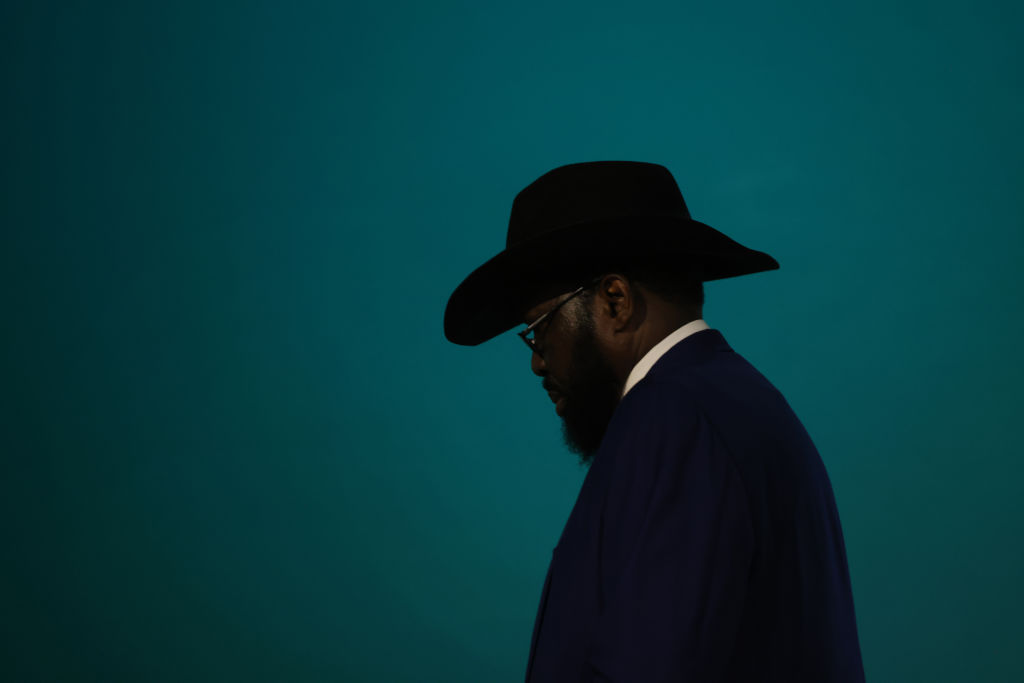
South Sudan, the world’s newest nation, was once the great hope of the international community. Born in July 2011 out of the shadow of Africa’s longest civil war, the fledgling nation in eastern Central Africa was celebrated and supported by America and the West. But less than 13 years since South Sudan’s independence, the country is mired in endless political violence, unprecedented corruption, and a dire state of underdevelopment. Although the West has begun to turn its back on South Sudan, the U.S. and her allies should take the lead on getting the country back on track.
For nearly 22 years, the people of South Sudan waged a resilient battle against successive regimes in Sudan—resisting Khartoum and aspiring to establish a secular, democratic state. In 2005, with the mediation of the Inter-Governmental Authority on Development (IGAD)—a regional organization composed of eastern African states backed by the U.S. and other Western powers—the civil war concluded with the promise of an independence referendum. This pivotal vote in January 2011 marked the birth of South Sudan six months later, raising global expectations for the new nation to fulfill its people’s longstanding dream of constructing a democratic state.
Yet recent international rankings paint a grim picture of South Sudan. Freedom House’s 2023 Freedom in the World report ranks South Sudan last among 210 countries and territories (alongside Tibet and Syria), describing it as “not free.” The Fund for Peace’s 2023 Fragile States Index places South Sudan third among 179 countries in fragility, behind only Yemen and Somalia. Transparency International’s 2022 Corruption Perceptions Index ranks South Sudan near the bottom among 180 countries. Meanwhile, the World Bank identifies South Sudan as “among the poorest countries in the world,” with four out of five South Sudanese living below the international poverty line.
This means that South Sudan, the world’s latest experiment in democracy, is well on its way to being another African basket case. President Salva Kiir Mayardit—who assumed power in 2005 as First Vice President of Sudan and President of Southern Sudan following the tragic death of John Garang de Mabior, the man defined the struggle of the South Sudanese people for years—presided over the referendum. Appointed President of the independent South Sudan in 2011, Kiir has remained in office since then without once subjecting the nation to democratic elections. He rules South Sudan as a personal fiefdom marked by assassination, torture, enforced disappearances, and arbitrary arrests of critics. I know that more than most—having been a political prisoner for nearly two years at the notorious Blue House prison, operated by Kiir’s National Security Service (NSS), and narrowly escaping assassination attempts by NSS hitmen in July 2020.
More From TIME
The U.S., having invested billions in humanitarian aid and South Sudan’s political transition, has major skin in the game. Abandoning South Sudan would also effectively cede the nation’s future to anti-democratic adversaries like Russia and China, both of whom have made inroads into Kiir’s regime and have boots on the ground across the country.
Yet the U.S. has begun to distance itself amid the country’s dire straits. This year, Washington and other Western donors are cutting humanitarian aid due to mismanagement of the nation’s abundant natural resources. While these measures have helped isolate Kiir’s regime, they haven’t ushered in the new beginning millions of South Sudanese yearn for.
In the absence of U.S. engagement, Kiir has sought new alliances that match his authoritarian and kleptocratic style. After failing to secure a direct meeting with President Joe Biden on the sidelines of the 2023 U.N. General Assembly, Kiir snubbed a meeting with junior U.S. officials, and visited Moscow in October 2023, where Vladimir Putin welcomed him and the two agreed to deepen ties across a range of issues.
Despite elections initially set for 2015, Kiir’s persistent power struggle with Riek Machar, his deputy-turned-rebel-leader turned deputy again, has enabled him to postpone a vote. The regime now claims elections will take place in December 2024. However, the South Sudanese political opposition faces restrictions, press freedom is stifled, and much of the country still grapples with tribal violence in ways that make a free and fair election impossible.
South Sudanese deserve a helping hand from their neighbors and the global community, especially those who played a role in South Sudan’s creation. The U.S., in particular, can get off the sidelines and impose sanctions against Kiir and senior NSS officials involved in human rights violations. Rather than allow Kiir to continue to subvert the democratic aspirations of South Sudanese people, Washington can demand and support the conduct of free and credible elections and serve as a vocal watchdog. In addition, the U.S. can provide better funding and support to democratic opposition figures and movements. For its part, the U.S. Congress can hold hearings on Kiir’s human rights record and the return on America’s investment in democratization efforts in South Sudan.
The strength and principles of democracy—and the resolve of the international community—are being tested in South Sudan. Holding Kiir to account can be the catalyst for a brighter future for South Sudan and a clear message that democracy’s best days still lie ahead—whether in Africa or further afield.
More Must-Reads from TIME
- Why Biden Dropped Out
- Ukraine’s Plan to Survive Trump
- The Rise of a New Kind of Parenting Guru
- The Chaos and Commotion of the RNC in Photos
- Why We All Have a Stake in Twisters’ Success
- 8 Eating Habits That Actually Improve Your Sleep
- Welcome to the Noah Lyles Olympics
- Get Our Paris Olympics Newsletter in Your Inbox
Contact us at letters@time.com